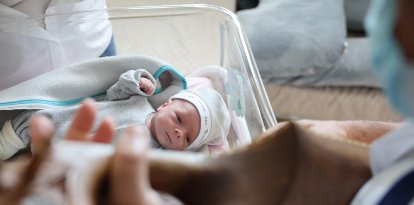San Francisco Department of Public Health provides free liquor to people struggling with alcoholism
The "Alcohol Management Program" consists of serving controlled doses of alcohol to volunteer participants, most of whom are homeless, and suffer from addiction.

(Voz Media - California Health Care Foundation - UCSF School of Medicine / Youtube)
The San Francisco (California) Department of Public Health has been implementing a project called the "Alcohol Management Program" for years. This scheme provides free alcohol (beer and vodka shots) to homeless alcoholics (all paid for by taxpayers' money). According to the text:
The program consists of serving controlled doses of alcohol to volunteer participants who suffer from addiction. The California Health Care Foundation explained the pilot program in an article published in 2020:
HomelessnessCOVID19AlcoholM... by Veronica Silveri
"Providing free drugs to drug addicts doesn't solve their problems"
The program (which has been operating since 2020 with the justification of increasing isolation during the COVID-19 pandemic), was fairly unknown until recently when Adam Nathan, president of the Salvation Army of San Francisco, posted on his X account criticizing what he witnessed when visiting one of the program's location and the $2 million spent on this program.
The program started with 10 beds and since 2020 has expanded to a 20-bed program operating in a former hotel, the San Francisco Chronicle reported.
Criticism even from the mayor of San Francisco
Officials who support the program say it helps save lives. However, many are opposed. One of the program's major critics is San Francisco Mayor London Breed, who stated a few months ago that the program was "not reducing the damage" but rather "making things much worse."
According to Alice Moughamian, a nurse in charge of the Managed Alcohol Program and the San Francisco Sobriety Center, "The goal is not to reduce the amount of alcohol consumed, nor to gradually reduce someone towards abstinence (...) The goal is to mitigate the numerous health, legal, and interpersonal harms associated with unsafe alcohol consumption."
Moughamian said the initial success of the program was what prompted health officials to expand it especially to "the Latino and indigenous population." She said nurses provide alcoholics with a motel room, three meals a day and enough alcohol "to satisfy their addiction needs, but keep someone at a safe level of intoxication."

























